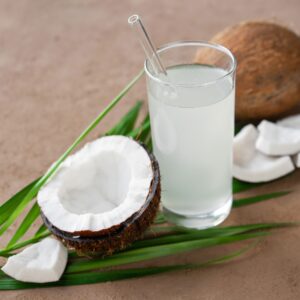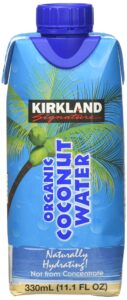Everyone’s relationship with food is a unique one and often changes and fluctuates over time. For some, it’s simply a means of survival, and for others, it can be what they most look forward to during the day. I personally fall into the latter category and enjoy indulging in a large variety of foods whenever possible. But even with my open and adventurous nature towards different foods, I’ve always wondered why there are some foods that I strongly dislike but are otherwise loved by my friends and family. What is it about our relationship with food that causes us to love or hate certain dishes or ingredients? These “divisive foods”, as I’m choosing to call them, can be very polarizing in society, and over the past few months, I’ve found myself thinking about why these foods evoke this black-and-white response.
Food is multidimensional
Foods possess a variety of traits (besides the taste) that define them. Some have different chemicals that can react with compounds in our body, others have unique textures that can satisfy or disgruntle us, and others still can hold special memories associated with them through experiences. I believe these additional traits are the key to understanding why foods can be so polarizing. I hope to create a series out of several different popularly divisive foods, but for now, I’d like to discuss in particular the properties of coconut and coconut water.
Coconut. You either like it or you don’t. While coconut itself has a laundry list of traits that might cause polarization over it, I’m particularly interested in what’s inside them– coconut water.
My First Impressions of Coconut Water
To start off with a little anecdote, I recently tried coconut water for the first time ever. I’m personally not a huge fan of coconut to begin with, (the texture of desiccated coconut shavings is especially not my favorite), but my significant other enjoys it so much that I decided I would give it a try to see what all the fuss was about. Long story short, I absolutely hated it and was completely disgusted by the taste immediately after it hit my tongue. I spent the next 20 minutes scrambling to eat or drink anything that would get the taste of it out of my mouth and was baffled at how anyone could stand to drink a whole glass of it. As you can imagine my s/o was quite offended and shocked by my violent reaction and quickly began an interrogation as to why I disliked the coconut water so much.
My first impression was that it somehow tasted spoiled. We knew for sure that the coconut water was not expired, but to me, it somehow tasted like how watered-down sour milk might taste. This came as a surprise to my s/o as he interprets the taste as pleasantly sweet and refreshing– the very opposite of what I tasted. Were we really drinking the same beverage? How is it that two people can have such different experiences tasting the same thing? These thoughts lingered in my mind for weeks following my taste test.
The Truth Behind the Taste
After some research, I found out that pasteurization may be to blame. Pasteurization is the partial sterilization of a product, typically milk or wine, that makes it safe for consumption and gives it longer shelf life. This is done by heating up the product and subsequently denaturing all enzymes in the product that may cause future spoilage. While this sounds like a great mechanism for sterilizing coconut water, it also greatly alters the flavor. In particular, this type of pasteurization can introduce a burnt-like flavor to the drink, which may explain why it tasted so funny to me. Fresh coconut water apparently tastes very different from packaged and pasteurized coconut water and is widely enjoyed in many South Asian cultures. This difference can also be compared to the contrast in taste between store-bought orange juice and freshly squeezed orange juice. While the ingredients used are practically the same, they taste different due to one being pasteurized with most claiming that the freshly squeezed juice tastes better.
Why is it that this flavor detraction is so strong in coconut water, but is less noticeable in products like milk? This is likely due to the long history of milk pasteurization that has allowed cultivators to perfect the level of pasteurization that both sterilizes the product to make it safe for consumption and preserves the flavors that we know and love. Coconut water pasteurization is a bit more difficult to strike a balance with, mostly because so much of its flavor profile is because of the enzymes that get removed during the process. It certainly makes sense then for people to swear by fresh coconut water and enjoy its natural properties for the tradeoff of shorter shelf life.
The Verdict
After exploring the properties of pasteurized coconut water, it can be easier to see why it’s so divisive among people. While some enjoy the flavor of coconut, others strongly dislike it, and whether that be due to pasteurization or simply an aversion to the flavor profile and aftertaste can vary from person to person. Reflecting on my experience with coconut water has inspired me to try fresh coconut water to see if I might enjoy the raw, unaltered flavor of the tropical fruit, but until then, I think I’ll elect to keep coconut out of my fried shrimp and away from my pastries.




